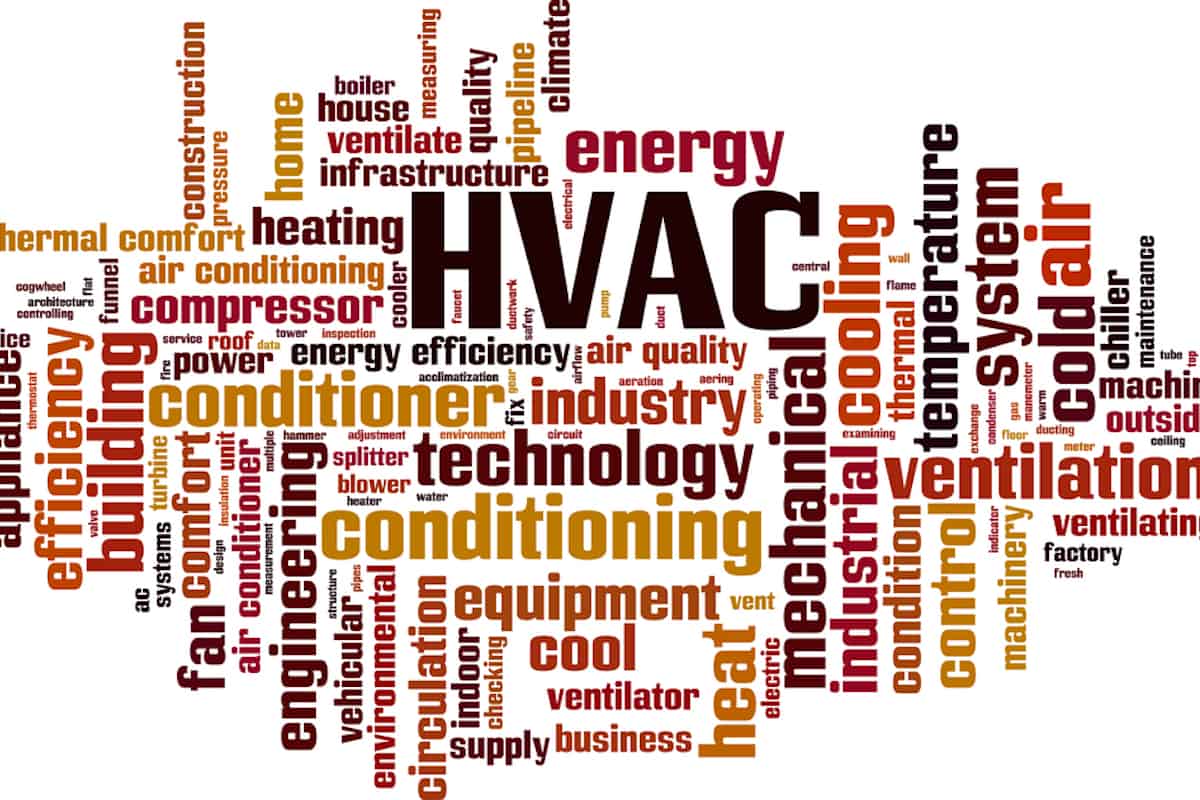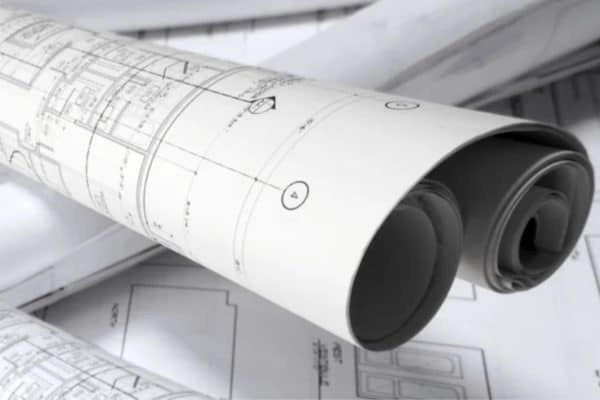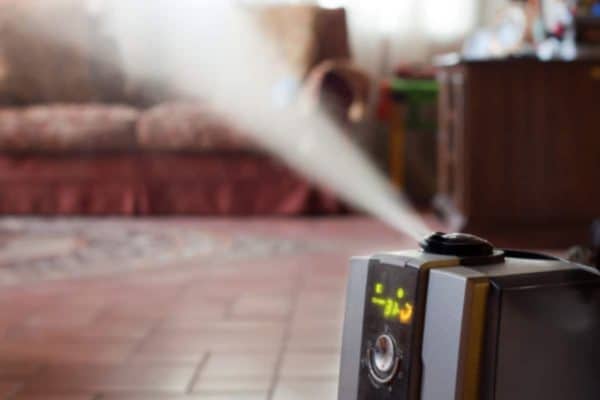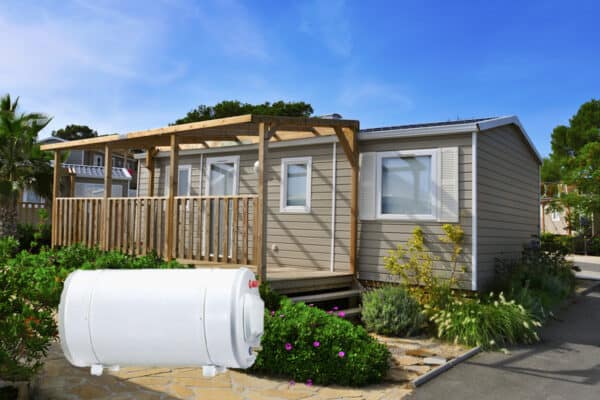What Type of Engineering is HVAC?
HVAC is one of the most confusing engineering fields for many students as there is hardly any official categorization for it. Even engineers that are currently working in the HVAC industry may not know where they belong. So, I went on to find out the answer.
Based on the principle used, the type of engineering for heating, ventilation and air conditioning (HVAC) is mechanical engineering. Principles such as heat transfer, thermodynamics and fluid mechanics are the core principles of HVAC and thus, HVAC is part of mechanical engineering.
HVAC involves more than just mechanical engineering. HVAC engineers often find themselves learning other engineering disciplines as they progress in their careers.
Major Engineering Disciplines
Wikipedia, government bodies and several universities generally agree that there are 4 major engineering disciplines:
- Chemical Engineering
- Civil Engineering
- Mechanical Engineering
- Electrical Engineering
Out of the 4 major engineering disciplines, many entities consider mechanical engineering as the broadest engineering branch.
Perhaps, that is why we often find it difficult to explain what mechanical engineering is, especially to our parents.
However, as the world progress faster than ever before, we may see more engineering branches adding to the primary engineering disciplines.
Sub-disciplines of Mechanical Engineering
As the broadest engineering branch, mechanical engineering has many sub-disciplines. Some of the common sub-disciplines of mechanical engineering are as follows:
- Acoustic (Sound)
- Manufacturing
- Automotive
- Aerospace
- Thermal (Heating & Cooling)
- Automation
One of the sub-disciplines of mechanical engineering is thermal engineering which HVAC can be categorized into. However, it doesn’t include the ventilation that HVAC has.
According to thermal-engineering.org, thermal engineering is a specialized sub-discipline of mechanical engineering that deals with the movement of heat energy and transfer. It also stated that:
“A thermal engineer must have knowledge of thermodynamics and the process to convert generated energy from thermal sources into chemical, mechanical, or electrical energy.”
Hence, you may further categorize HVAC as part of thermal engineering like some people do or, just view HVAC as part of mechanical engineering.
Mechanical Engineering: Heating, Ventilation and Air Conditioning
To understand why HVAC is part of mechanical engineering, we must go back to the principles that govern it.
At the core of HVAC, there are 3 major principles/physics involved. These core principles are what make heating, cooling and ventilation possible:
- Heat Transfer
- Thermodynamics
- Fluid Mechanics
Heat transfer is the transition of thermal energy from a body of higher temperature to a lower temperature, defined by uprm.edu.
Thermodynamics, the science of the relationship between heat, work, temperature, and energy. In broad terms, thermodynamics deals with the transfer of energy from one place to another and from one form to another, as explained by Britannica.
Fluid mechanics is the study of fluid behaviour (liquids, gases, blood, and plasmas) at rest and in motion, by Professor Majid Ghassemi and Dr. Azadeh Shahidian.
If you study mechanical engineering, you come across these 3 principles. In addition, HVAC also requires an understanding of the vapor-compression refrigeration cycle as well as the properties of air.
These principles and subjects are part of the teaching in mechanical engineering. Furthermore, you might also learn the following subjects:
- Measurement and Instrumentation
- Computer Aided Design (CAD)
- Project Management, Planning and Control
These subjects are part of the tools used in HVAC. We use instruments to measure HVAC performance, CAD drawings to understand HVAC layout and project management skills to plan and control HVAC construction projects.
From principles and physics to subjects taught; from heat transfer, thermodynamics and fluid mechanics to instrumentation, CAD and project management, these are the evidence that solidifies the claim that HVAC is indeed part of mechanical engineering.
What is an HVAC Engineer Called?
Since HVAC is part of mechanical engineering, should we call an HVAC engineer a mechanical engineer? Well, maybe not.
Some people further categorize HVAC as part of thermal engineering. Thus, some HVAC engineers are called thermal engineers.
However, as mentioned earlier, thermal engineers deal with heating and cooling but ventilation and air conditioning are also part of HVAC.
Hence, people may not agree that HVAC engineers are thermal engineers. So, what are they?
Role of HVAC Engineers
Generally, we refer to an engineer as an HVAC engineer if the person is working in the HVAC industry. However, an HVAC engineer is often called differently based on the role.
Design Engineer or Mechanical Engineer
An HVAC engineer is known as a design engineer or sometimes, a mechanical engineer who specialized in HVAC if the person is responsible for the design of HVAC systems.
In HVAC, a design engineer usually graduates from mechanical engineering and works as a consultant or advisor who designs and approves HVAC systems.
Design engineers often have more knowledge of codes, standards and practices used to govern HVAC designs. They have the highest authority in a project among other HVAC engineers.
Project Engineer and Site Engineer
An HVAC engineer is known as a project engineer or a site engineer if the person is responsible for the construction or installation of HVAC systems.
In HVAC, the need for a mechanical engineering degree is less for a project engineer as the person requires skills beyond just mechanical engineering.
Project engineers can be found in contracting companies. They often have more knowledge about site management, project scheduling and the installation of HVAC units.
In terms of authority in a project, they are second to design engineers; they need to seek approval from design engineers before proceeding with the installation.
Sales Engineer and Product Engineer
An HVAC engineer is known as a sales engineer if the person is selling HVAC products or, a product engineer if the person is providing technical support for HVAC products.
Sometimes, sales engineers may not be considered as HVAC engineers and even engineers alone if they are not engineering-based or technical-based.
Many HVAC products are sold by non-engineers or sales executives or sales representatives.
However, product engineers are mostly engineers depending on the complexity and technicality of the supporting HVAC products.
Both sales engineers and product engineers can be found in manufacturing companies that produce HVAC products such as air conditioners, ventilation fans and air filters.
Sales engineers and product engineers usually don’t involve in a project by contract. However, they provide technical support for project engineers and design engineers. Hence, they have the lowest position in the HVAC industry but often have the greatest knowledge about specific HVAC products and applications.
Therefore, an HVAC engineer is called a design engineer if the person is responsible for the design of HVAC systems.
However, if the person is responsible for the installation of HVAC systems, the person is called a project engineer.
Otherwise, an HVAC engineer is known as a product engineer if the person is responsible for providing technical support for HVAC products and a sales engineer if the person is selling HVAC products.
The HVAC Industry: What to Expect?
If you’re thinking of starting a career in HVAC as a design engineer, a project engineer, a sales engineer or a product engineer, understanding the HVAC industry and how it works will give you a clearer idea.
Generally, working in the HVAC industry, you can expect to work in the construction of residential buildings such as landed houses, high-rise apartments, shopping malls and retail stores, and commercial buildings such as hotels, office towers, hospitals and factories.
No matter which role you take, as an HVAC engineer, you are most likely working in the building construction industry. The development of cities and towns depends on you!
As a design engineer, you will constantly seek knowledge about HVAC from technical and design perspectives. You may attend paid or free seminars and courses to gain points that help you advance your career.
If you decide to become a project engineer, get ready to face all kinds of people at the construction site. You most likely need to be tough and learn many social skills by yourself. Meanwhile, you’ll gain some technical skills along the way.
For a sales engineer, of course, you need to have the ability to sell. You can expect number-based KIP which can be stressful and rewarding at the same time.
Whereas for a product engineer, you will be specialized in certain HVAC products and their applications which can be valuable considering that not many HVAC engineers have the opportunity to go into such technical details.
Conclusion
HVAC is a sub-discipline of mechanical engineering. It is part of mechanical engineering. Some people consider HVAC as part of thermal engineering but it is nonetheless part of mechanical engineering.
The principles and physics involved in HVAC are what has been taught in mechanical engineering such as heat transfer, thermodynamics and fluid mechanics.
Furthermore, mechanical engineering also teaches measurement and instrumentation, computer aided design (CAD) and project management, planning and control which are tools used in HVAC.
So, HVAC is part of mechanical engineering and thus, an HVAC engineer can be referred to as a mechanical engineer, a design engineer, a project engineer, a site engineer, a sales engineer or a product engineer based on the role and responsibility.
If you have anything to add (or ask) about this topic, leave a comment down below!








